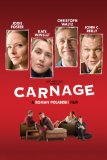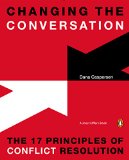The conflict
The film released in 2011 by Roman Polanski was the film version of “Le Dieu du Carnage”, a play by Yasmina Reza, the French novelist and playwright. Carnage is a film to be watched in one go and that gives the spectator a deep discomfort (“Can we seriously go that far?” This is the question that I asked myself – several times – as I watched the film) . It is a hard film that leaves its mark, one of those “no half measures” but that, from the point of view of mediation of disputes, it is very useful because it gives glimpses of light on conflict and its destructive dynamics, based on the most classic logic of escalation.
In the film Carnage, conflict is represented all around, with alliances and conflicts between the characters that cause a dialogue after another, one scene after another, interaction after another, to change. It is a film which revolves around four main characters (two sets of parents from Brooklyn who decide to meet up to discuss the dispute between their young children and sort it out like “civilized people”) In their interaction, there is a constant dichotomous search for opponents and allies, in the most competitive perspective ever, even when it appears under the guise of collaboration and availability (in fact, the two couples meet to discuss a problem).
Four actors (Jodie Foster and John C. Reilly on the one side, Christoph Waltz and Kate Winslet on the other), we said, but more than enough to describe the ‘”world-universe” that moves behind the scenes of “the worse it is, the better”, in which – in a personal interaction – it does not matter so much to obtain benefits, but mostly to inflict as much damage as possible. Characters that also describe the dynamics of conflict (a cross between husbands on one side and wives on the other), but also the many sources of tension within a family (husband and wife within each couple) ready to explode at inopportune moments. Dynamics that develop from initial research on “what” to do to solve the problem together and “how” to do it.
A conflict in which seems quite clear at first (at least in appearance); someone adopts a “soft” approach and someone a “hard” one, someone who is aggressive and who, instead, shows greater deference. However, as time passes, the comparison between the two pairs of parents goes skyward, and the conflict, during its journey, goes from latent to manifest and virtually unstoppable. So, at the end of the movie, you only just stop, gather your ideas and constantly reflect on the many ideas of things to do to avoid falling onto this slippery slope (which, who knows, we could “easily” take even us viewers, if we had the misfortune to find ourselves in their position) that the protagonists choose unwittingly (?) to take … After all, as the characters suggest, it’s human nature, and you can not easily escape from it.
This is a film that finishes perhaps in a surprising way (with respect to the parents), but at the same time, it also becomes more predictable (with respect to the argument between the children), as if to emphasize that there is an alternative and that, after all, we are not born as willing predators or prey – we become them, that is to say, ready to rip each other up for nothing – perhaps even through bad examples in films, where we find an effective representation.
In the end, Carnage is a concentrated analysis of the dynamics of conflict and, above all, on the “distortions” of communication within it. A movie to watch, and re-watch – perhaps several times, to pursue every single “fragment” of its valuable lesson. At least, once the “discomfort” has passed of seeing us represented in some way…
About the author: Stefano Cera: As a child he watched “2001: A Space Odyssey” and fell asleep in the cinema! However, he has since developed an ‘”insane passion” for the big screen and above all (once he became a trainer) for all that this gives to learning. He develops his activities in the classroom working with videos and films… because a scene is really worth much more than words. Senior Consultant & Experiential Trainer.


